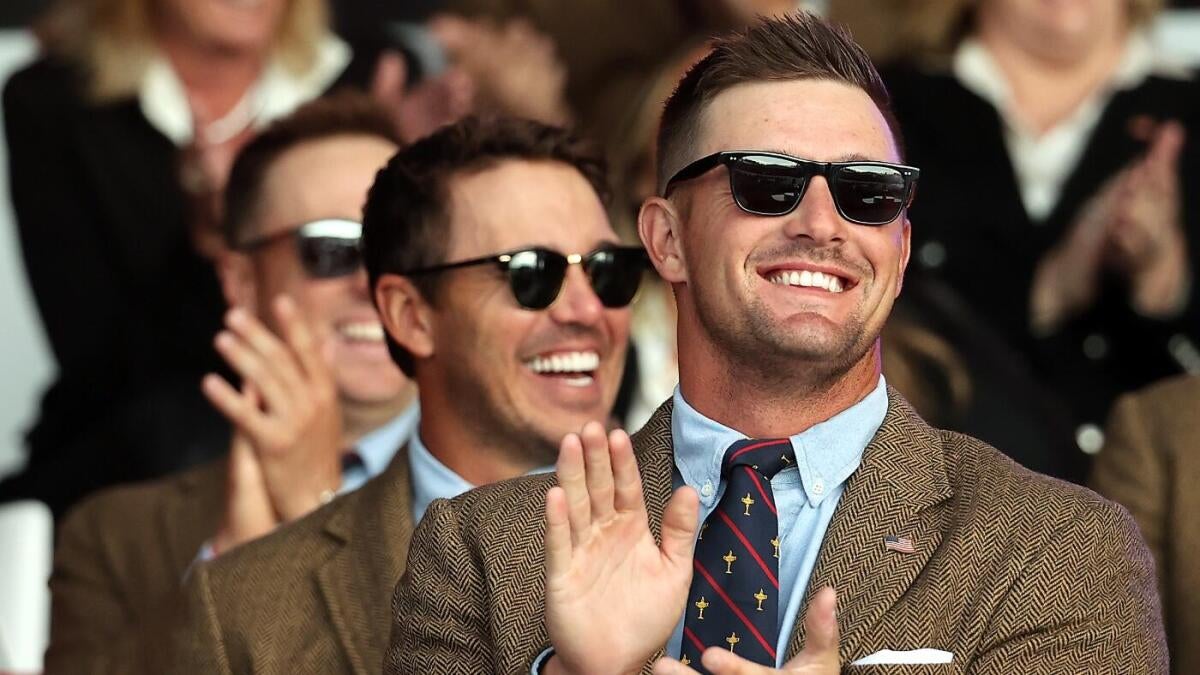The Ryder Cup Dinner: A Bridge to Unity
Introduction
Golf has always been a sport of tradition, rivalries, and fierce competition—but rarely has it been a stage for unity. That’s why Keegan Bradley’s recent decision to invite Bryson DeChambeau and Brooks Koepka to the U.S. Ryder Cup dinner has sent ripples through the golfing world. This move isn’t just about assembling a strong team; it’s a statement—one that challenges the divisions between the PGA Tour and LIV Golf, proving that talent and teamwork should transcend politics.
The Strategic Genius Behind the Invitation
Keegan Bradley, the newly appointed U.S. Ryder Cup captain, isn’t just thinking about chemistry—he’s thinking about winning. By extending an invitation to DeChambeau and Koepka, two of golf’s most polarizing yet undeniably skilled players, Bradley is making it clear: the Ryder Cup is about performance, not allegiances.
Both players have had their share of controversies, particularly with their move to LIV Golf, which has often been at odds with the PGA Tour. Yet, Bradley’s decision signals a shift—a recognition that the best players, regardless of where they compete, deserve a shot at representing their country.
Team Dynamics: From Rivals to Teammates
One of the most fascinating aspects of this move is how it could reshape team dynamics. DeChambeau and Koepka have famously clashed in the past, with their rivalry becoming one of golf’s most talked-about storylines. But the Ryder Cup has a way of turning competitors into comrades.
The dinner serves as more than just a formality—it’s an opportunity for players to reconnect, build trust, and forge the kind of camaraderie that wins tournaments. If Bradley can successfully integrate these two into the team, the U.S. squad could become an unstoppable force.
LIV Golf’s Place in the Ryder Cup
The inclusion of LIV Golf players in Ryder Cup discussions is a turning point for the sport. For years, the PGA Tour and LIV Golf have been locked in a battle for dominance, with players often forced to choose sides. But Bradley’s decision suggests that the tide may be shifting.
If DeChambeau and Koepka perform well, it could open the door for more LIV players to be considered for future Ryder Cups. This could lead to a more inclusive selection process, where talent—not tour affiliation—determines who gets to compete.
Fan Reactions: Divided but Intrigued
The golfing community has had mixed reactions to the news. Some fans are thrilled at the prospect of seeing DeChambeau and Koepka back in the Ryder Cup mix, while others remain skeptical, questioning whether past tensions could disrupt team harmony.
Media coverage has been equally polarized, with some outlets praising Bradley’s boldness and others questioning whether this move could backfire. Regardless of the debate, one thing is certain: all eyes will be on how this decision plays out on the course.
The Future of the Ryder Cup
Bradley’s invitation could set a precedent for future Ryder Cups. If this experiment succeeds, we may see more captains prioritizing skill over politics, leading to stronger, more competitive teams.
This could also encourage greater collaboration between the PGA Tour and LIV Golf, potentially easing tensions and fostering a more unified golf landscape. The Ryder Cup has always been about pride, passion, and patriotism—now, it might also become a symbol of reconciliation.
Conclusion: A Bold Step Forward
Keegan Bradley’s decision to invite Bryson DeChambeau and Brooks Koepka to the Ryder Cup dinner is more than just a strategic play—it’s a statement about the future of golf. By prioritizing talent over tour divisions, Bradley is challenging the sport to evolve.
Whether this move leads to victory or controversy remains to be seen, but one thing is undeniable: the 2025 Ryder Cup just became one of the most anticipated events in golf. And if Bradley’s gamble pays off, it could redefine what it means to be a team in this fiercely individual sport.











